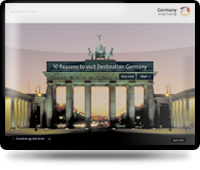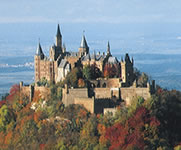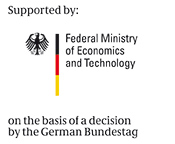Germany has much to offer in this respect:
Visiting sites of historical events, places where important characters from religious history lived and worked, travel to locations with religious significance (pilgrimages), for contemplation, meditation or simply quiet reflection. A chance to take time out from everyday life, enjoying the tranquility and magnificence of churches and abbeys or engaging in the meditative experience of a pilgrimage.
Religions in Germany
Germany was predominantly a Roman Catholic country during the medieval period. It was not until the Reformation started by Martin Luther in 1517 that Protestantism emerged and has since become the country's second major religion.
Nowadays Roman Catholics, mainly concentrated in the south, make up about 30 percent of the German population. Protestants, the great majority of whom are Lutherans, make up 30 percent of the people and live primarily in the north.
Approximately 4 percent are Muslim and a small percentage of Germans are Jewish. Today Germany has the fastest growing Jewish community in Europe, made up mostly of Jews from Eastern European countries, who have begun to settle in the larger cities of Germany, particularly Berlin.
Visitors to Germany can experience these major world religions and learn first hand and in-depth about their historical origins and traditions, from the past to the present day at various museums, memorials and religious buildings and places of pilgrimage found throughout the country.







